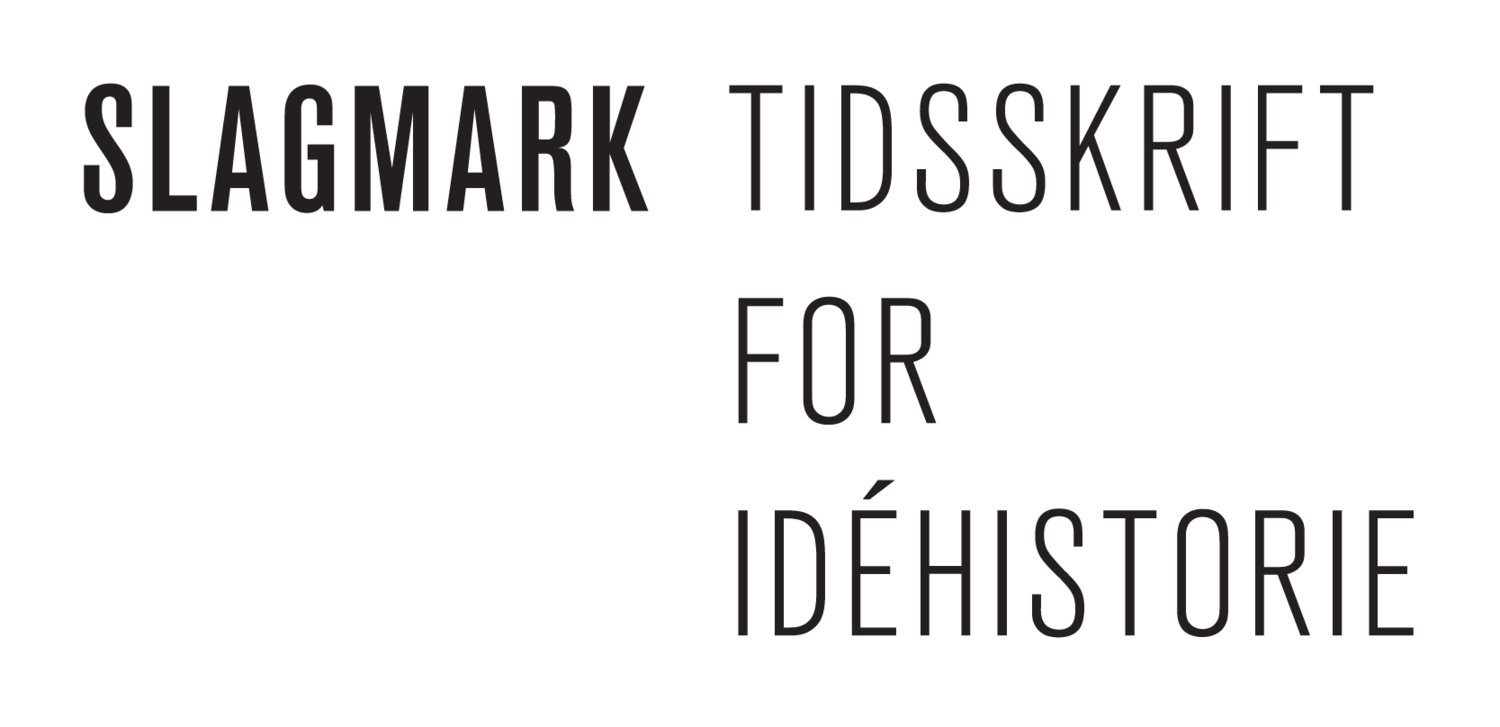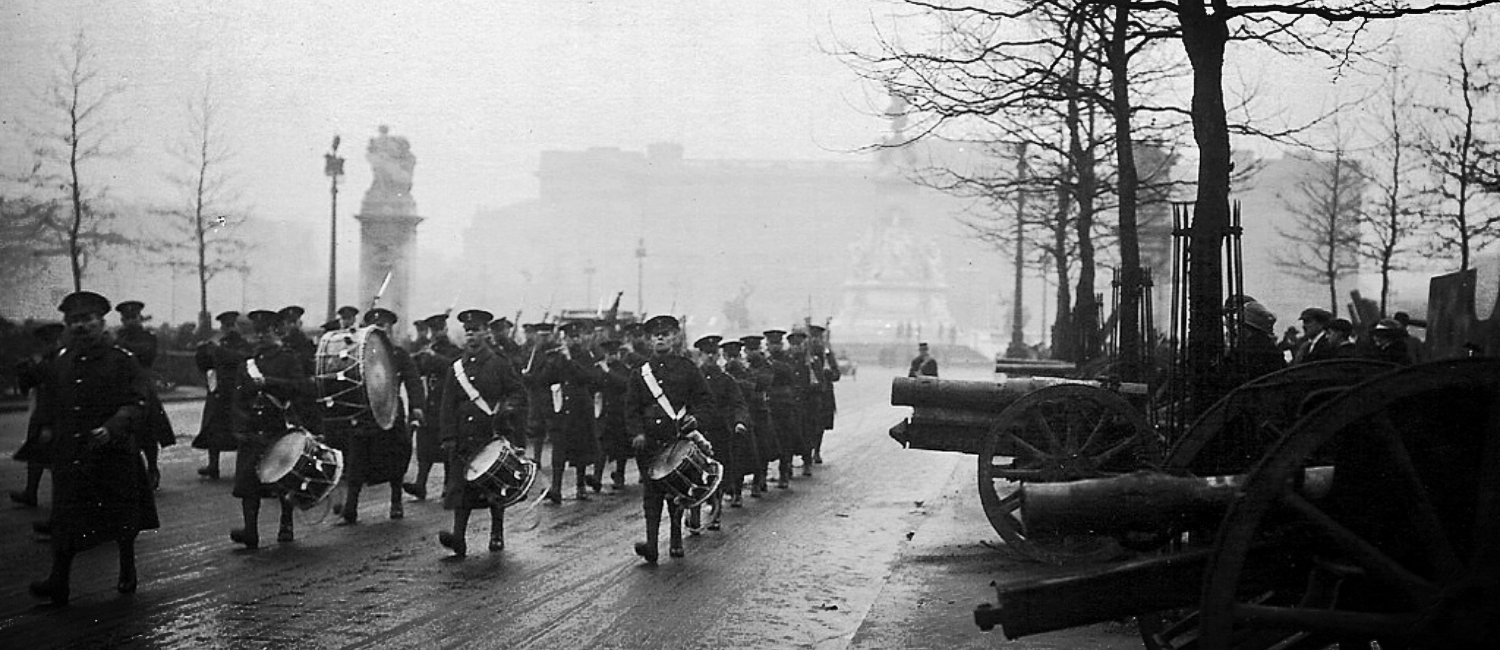ABSTRACTS, SLAGMARK #70
Lars Ylander: Deep Ecology and life-eroticism in Ludwig Klages’ “Man and Earth”
Ludwig Klages’ famous essay from 1913 is here translated into Danish for the first time. According to Klages, the planet-wide destruction of nature is a disastrous outcome of a runaway mad civilisation focused on progress. Famously, he finds the root of the madness to be an intricate entanglement of science, technology, capitalism and Christianity. Ultimately, these are all aspects of what he calls Spirit (Geist) – an alienating and life-disruptive power that tears man away from its original being interwoven with living nature. Its benign adversary, Soul, is characterised by caring for life. This elementary or cosmic love is linked to Soul’s way of recognizing reality through a dynamical flow of sensual pictures. On the other hand, Spirit’s drive to destroy and kill is related to its way of fixating knowledge of the world by means of concepts. Klages diagnoses modern ‘civilisation’ as an era of downfall of the Soul. The devastating events the following summer of 1914 may be seen as a consequence of the bad cultural standing. An anthropological ecology, spirit-dominated and with civilised man’s interest as its core value, is not enough to save nature. Only a deep ecology, where Soul dominates Spirit, can do so, moving the value focus away from man to Earth.
Keywords: Ludwig Klages; Earth; Deep Ecology; Civilisation; Soul; Spirit
Rasmus Navntoft: Thomas Mann – Through the diseases of the war towards a new humanism
The German author and Nobel Prize winner Thomas Mann (1875-1955) perceived World War I as a moral battle against the civilization project rooted in the European enlightenment. Like many other German intellectuals of that time, Mann stresses an opposition between the concept of culture and that of civilization – this conflict is seen as inherent in the European soul – and defends Germany’s right to remain a culture that does not evolve into a civilization. The concept of culture can contain irrational features such as mystical, bloody and terrifying teachings, whereas civilization is characterized by reason, enlightenment, skepticism and hostility towards passion and emotion. In his major work The Magic Mountain (1924) however, Mann tries to overcome this opposition and displays, through the metaphors of the text, that a new humanism is dependent upon a mystical and completely illogical balance between culture and civilization. The main character of the novel does not succeed in finding this balance. But, nonetheless, Mann continues to see the possibilities of a new humanism through this perspective in order to point out a humanistic hope in the shades of two European world wars.
Keywords: Culture; Civilization; World War I; Humanism; Pharmaconic logic
Adam Paulsen: Two Worlds: Representations of War in Walter Flex, Ernst Jünger, and Erich Maria Remarque
This article compares representations of war in Walter Flex’ The Wanderer between Two Worlds (1916), Ernst Jünger’s Storm of Steel (1920), and Erich Maria Remarque’s All Quiet on the Western Front (1929). It shows the extent to which these representations are shaped by political and ideological convictions. The difference between the romantic idealism of Flex and Jünger’s “soldierly nationalism”, which he proposed as a model for the time to come, reflects a major shift during World War I itself. By contrast, neither past nor future seem to be of any use in Remarque’s famous antiwar novel, in which the war generation surprisingly is described as having nothing else to live for beyond the present, i.e. beyond war. Finally, the article suggests how these different representations of war each, in their own way, contributed to the aesthetics and ideology of fascism.
Keywords: World War I; German War Novels; Battle of Langemarck; The Lost Generation; Heroism
Bjarne Søndergaard Bendtsen: Danish national-conservatives and the First World War
Although Denmark managed to stay neutral throughout World War I, it nevertheless generated a heated debate in the country; most people took a clear stand for one side or the other. After the traumatic Danish defeat in the 1864 war with Prussia and Austria, Germany was regarded as the arch enemy and not unexpectedly most Danes sided against the Central Powers in the public debate. This was not least the case amongst the national-conservative politicians, intellectuals and artists. They form the focus of my article, and the questions I address are: how did the national-conservatives experience the mental watershed of the war? Was it as a blessing or a curse?
Keywords: World War I; Denmark; neutrality; national-conservative intellectuals; cultural mobilization; national regeneration
Claus Kloster Elbæk: Existential meaning in the trenches – Knausgård's existential reading of World War I
This article investigates how the Norwegian author Karl Ove Knausgård in My struggle (2009-2011) uses his existential reading of 1914 and World War I to nuance our general understanding of the war. Knausgård wants to demonstrate that the collective enthusiasm, which took millions of men by storm, was existentially motivated. The war was able to give the soldiers a sense of meaning, a project and a community; feelings they needed in their civilian lives. Furthermore, Knausgård uses his reading of World War I to make a connection between the soldier’s fight and his own struggle. On the basis of his existential reading of World War I, Knausgård is able to formulate a literary poetics and existential experience. Therefore, Knausgård is able to actualize World War I.
Keywords: Existential reading; 1914; World War I; poetics; dialectics
Rikke Alberg Peters: Social cohension. A discourse analysis of the concept ‘social cohesion’ in the public debate
This article addresses the Danish concept ‘sammenhængskraft’ (social cohesion) in its shifting articulations in the Danish public debate from 1994-2010. By combining a discursive analytical approach with Reinhart Koselleck’s notion of asymmetric counter-concepts it is demonstrated how the concept is embedded in various political discourses. Through this process, which is described as a semantic battle, it gradually changes its meaning from an open social political concept used in particular when discussing future socio political challenges in the well fare state to a national conservative – and defensive – key concept. It is argued that when used in a political conflict as a conceptual tool with which to fight the enemy the term ‘sammenhængskraft’ creates disintegration rather than cohesion.
Keywords: Social cohesion; asymmetric counter-concepts; disintegration; nationalism; culturalization

